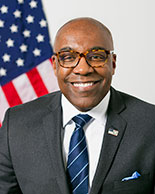
Illionis Attorney General leads coalition examining distance learning protocols
Chicago — Attorney General Kwame Raoul today led a bipartisan coalition of 23 states in a letter to the National Council for State Authorization Reciprocity Agreements (NC-SARA), urging it to increase transparency in determining interstate policy for distance education.
The NC-SARA provides leadership over reciprocity agreements joined by 49 states, the District of Columbia, Puerto Rico and the Virgin Islands, and it controls the minimum standards and policies to which participating institutions must adhere. Over 3 million students are enrolled in distance education courses offered by its 2,276 participating institutions. The NC-SARA staff and board of directors are working to change its policies, including those on important issues such as consumer protection, but Raoul and the coalition argue that the processes for considering and changing policies have been ambiguous at best.
“The NC-SARA dictates the minimum standards and policies for distance education courses for millions of students across the country,” Raoul said. “I urge the NC-SARA to take steps to increase transparency of its decision-making process for these policies to help ensure that students are protected from predatory distance education institutions.”
In today’s letter, Raoul and the coalition noted with concern the lack of transparency and accountability of the NC-SARA’s staff and board when compared to the outsized impact of the NC-SARA’s policies on students and states. Raoul and the coalition urged the NC-SARA to mirror the tenets of transparency outlined in states’ open meetings laws and the U.S. Department of Education’s notice and comment requirements for changing policy. The attorneys general also urged the NC-SARA to increase the membership and control of states on its board as well as making the board’s meetings fully public.
Raoul and the coalition recommend the NC-SARA improve its policies, including:
- Providing for public disclosure of all policy proposals submitted to the NC-SARA, along with details of what action was or was not taken and the basis for those actions.
- Providing for direct disclosure of the actions taken in response to proposals and the basis for those actions to the stakeholders who submitted those proposals.
- Expanding the proposed public comment process to allow for public comment on all proposals submitted, rather than only for those proposals that the NC-SARA staff have not recommended to the board for approval.
- Increasing state membership and control of the NC-SARA Board of Directors.
- Making the NC-SARA Board of Directors’ meetings fully public.
Today’s letter follows a bipartisan letter sent by Raoul and a coalition of 25 attorneys general in August 2021, urging greater consumer protections for students of distance learning programs. Raoul and the coalition have not received a response to that letter.
Joining Raoul in today’s letter are the attorneys general of Colorado, Connecticut, Delaware, the District of Columbia, Hawaii, Iowa, Maine, Maryland, Massachusetts, Michigan, Minnesota, Nebraska, New Jersey, New Mexico, New York, Nevada, Oregon, Pennsylvania, Rhode Island, Tennessee, Vermont and Washington, as well as the Hawaii Office of Consumer Protection.
